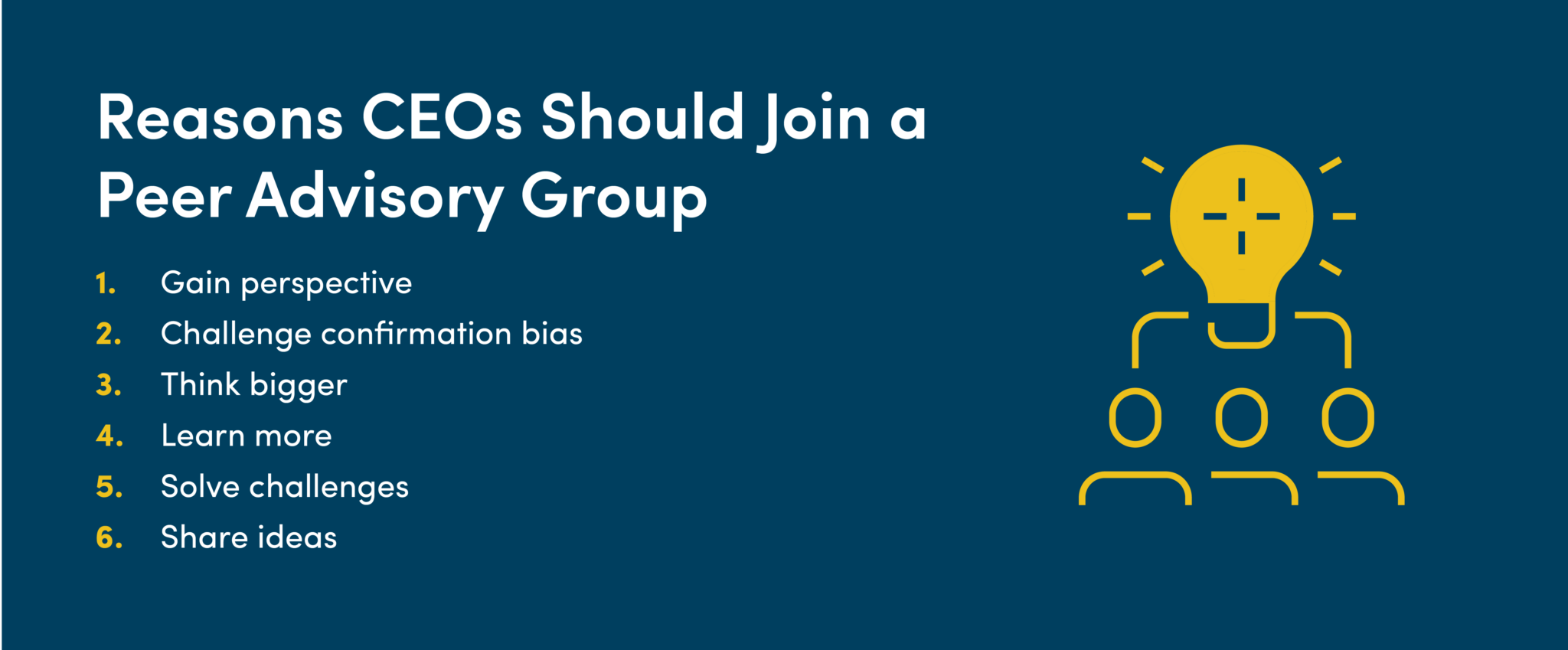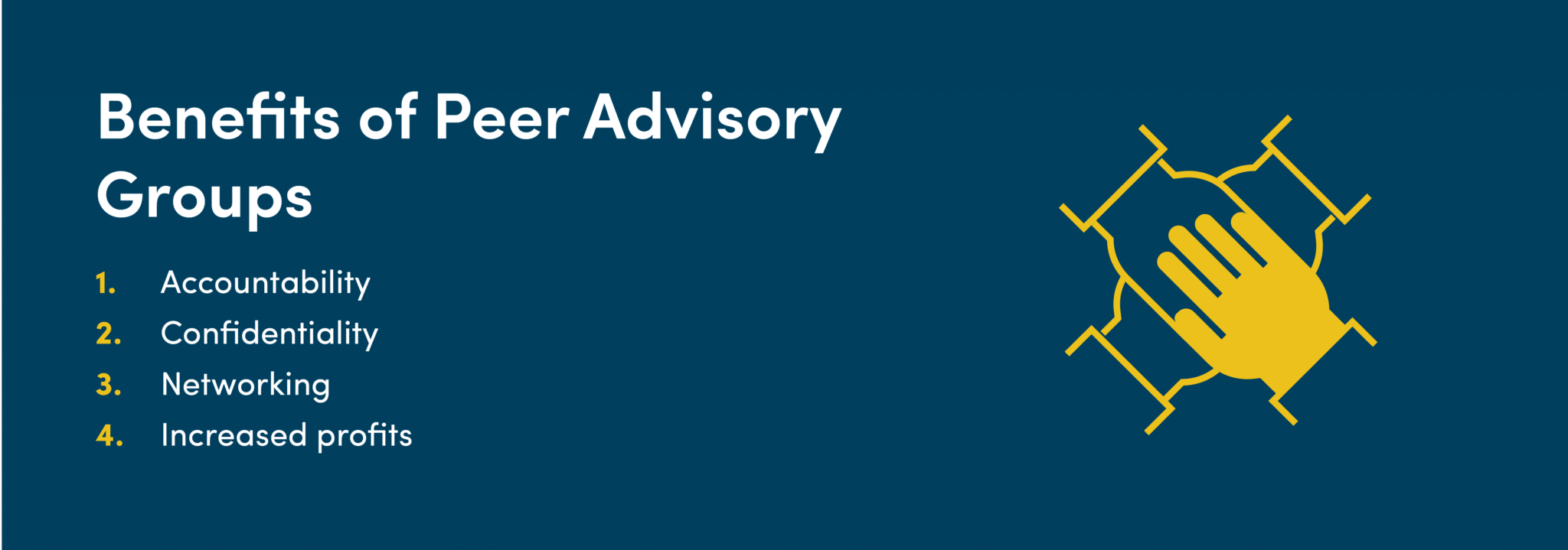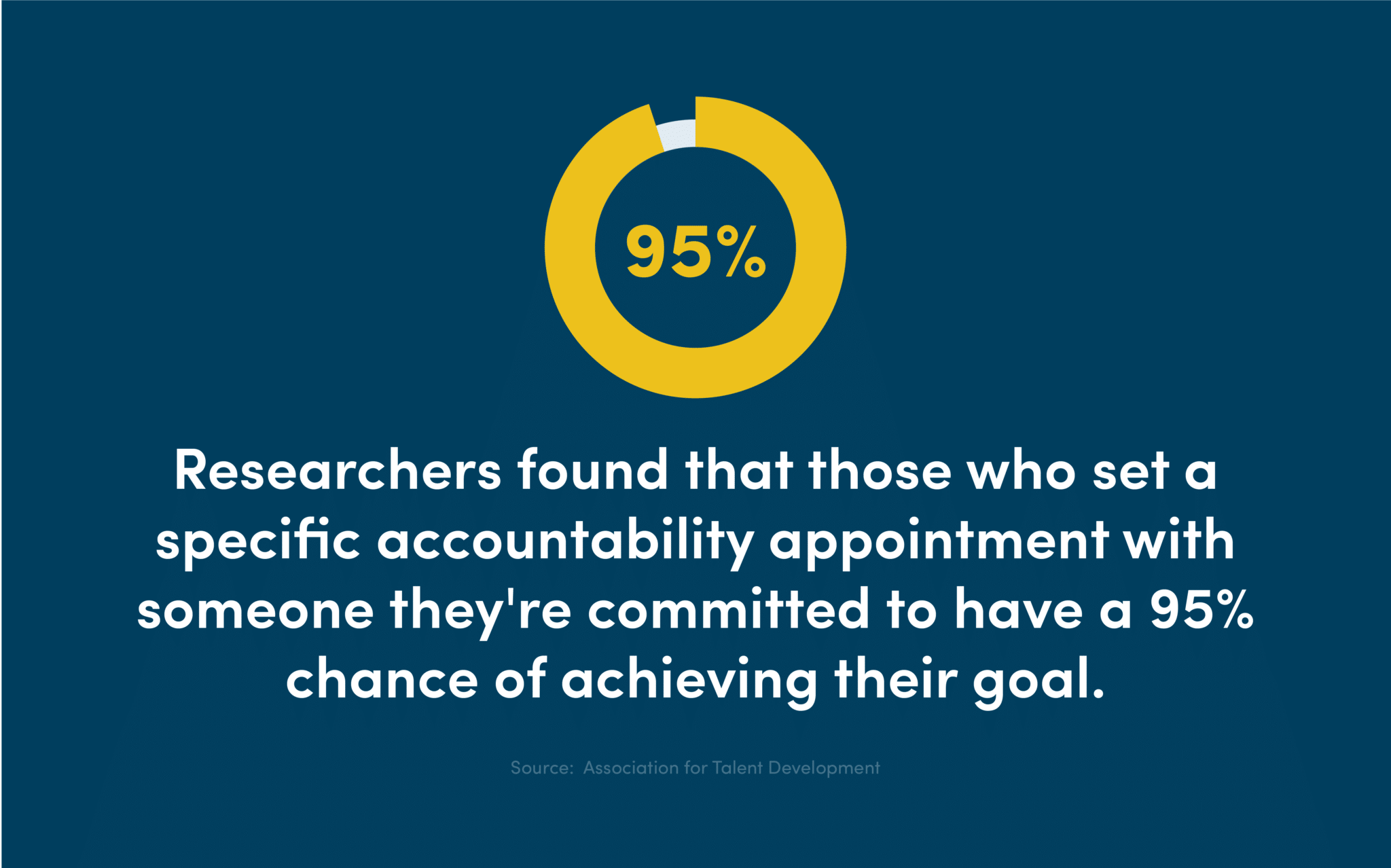What Is a Peer Advisory Group and Its Benefits?

Peer advisory groups are like sounding boards, where business leaders from a range of industries and backgrounds come together to troubleshoot issues, share best practices and receive and offer unbiased feedback with an experienced mentor leading the charge. It’s like having your own personal climb team on your leadership journey.
According to a Stanford Graduate School of Business study, many CEOs struggle with isolation, while almost 75% do not receive outside leadership advice. Simply put, it can get lonely at the top. And when left unchecked, executive isolation can be a debilitating malady that oozes throughout the organization. Fortunately, a CEO peer advisory group can help. If you’re looking to scale to a higher elevation in business and life, below are six time-honored benefits leaders can gain from CEO peers.
- What Is a Peer Advisory Group?
- Why Should CEOs Join a Peer Advisory Group?
- What Are the Benefits of Peer Advisory Groups?
- How Do You Choose a Peer Advisory Group?
- How to Grow Beyond the Peer Advisory Group
- Key Takeaways: Peer Advisory Groups
What is a Peer Advisory Group?
A peer advisory group or CEO peer advisory group is a highly-focused, specialized network of support comprised of fellow business owners and executives from non-competing organizations. Through the structured environment of a peer advisory board, leaders work together to tackle tough subjects and topics, helping unlock better decision-making skills, increased profits, and many other benefits for the individual and organization.
The CEO peer advisory group represents a unique opportunity for executives to share experiences, offer insights, and give and receive advice. By participating in a business peer advisory group, you’ll be optimally positioned to navigate challenges, create solutions, and achieve your goals, whatever they may be.
Why Should CEOs Join a Peer Advisory Group?
There are many valuable insights executives can gain from joining a peer advisory group. Below are some of the top reasons why considering a peer advisory group can prove beneficial:

1. Gain perspective
World-class leaders seek diverse perspectives on important decisions from trusted peers. They find other CEOs and business leaders who’ve tackled similar issues in different industries. These peers understand the nuances and challenges of the C-suite and bring fresh perspectives unhampered by institutional knowledge. Hearing from CEOs outside their company and industry allows leaders to honestly share any challenges and receive genuine, objective, and unbiased feedback.
2. Challenge confirmation bias
Great leaders are high on curiosity and low on ego. These leaders are the first to admit they don’t have all the answers and also the ones who believe most that a breakthrough is on the horizon. They are inquisitive, welcome new ideas from trusted sources that challenge their thinking, and are eager to explore.
Confirmation bias can occur when leaders have already made up their minds about a situation and then seek out answers that validate their point of view. Peer advisory groups help leaders to actively work to prevent that from happening, as CEOs come together with those who they know will challenge their position.
3. Think bigger
Leading people and teams can too often be focused on the most pressing issue of the moment instead of the big picture. Maybe it’s replacing a key hire, launching a new product, reducing costs, or chasing incremental growth. Taking time away from day-to-day operations allows leaders to step back and focus on key strategic decisions with peers.
4. Learn More
One of the most powerful tools in peer advisory groups is an exponentially expanded knowledge base. Listening to different approaches, perspectives, and experts can encourage leaders to think outside the box. When CEOs make a deliberate effort to learn from those with diverse backgrounds and experiences, they can tap into new ways of thinking — fresh perspectives that challenge the status quo.
5. Solve challenges
Some leaders may discover that they are thinking about a challenge in a way that doesn’t get to the true underlying issue. If you tell a friend you have an issue with delegating assignments, they might give you a new technique to try. However, a well-trained coach will listen closely and ask great questions that get to the root of what’s holding you back.
6. Share ideas
As a Vistage member, I’ve learned as much from listening to others process their issues as I have from seeking input. When you’re listening closely to others, it often unlocks a solution for your business that you might not have considered.
While you can certainly attempt to hike a formidable mountain on your own, it’s good to know you have options. If your goal was to climb Mt. Everest, you’d hire a guide and climb with a team who knows the mountain and supports your journey. World-class leaders understand the same is true in business.
Peer advisory groups equip CEOs and business owners with the tools, resources, and guidance so they can make great decisions. Leaders who surround themselves with executive peers who offer differing points of view — and push them to achieve their next peak of success — create a fundamental condition for leadership growth.
What Are the Benefits of Peer Advisory Groups?
Unlike any other forum, peer advisory groups can help you achieve your goals and share in the success. However, not all peer advisory groups are created equal. The cornerstones and benefits of an effective peer advisory group are accountability, confidentiality, network building, and results, such as increased profits. Let’s explore these four proven benefits of peer advisory groups.

1. Accountability
The power of accountability can go far. The American Society of Training and Development (ASTD) conducted a study on accountability and discovered you have a 65% chance of achieving a goal if you commit to and are accountable to someone. However, when you have a specific accountability appointment with someone you’ve committed to, you can bolster your chances of success up to 95%.

The message is simple: if you want to increase the chances of achieving your goals, accountability is the key. Peer advisory boards help create the supportive, accountable environment you need for success. Unlike a spouse or subordinate, your peer advisory board members have no incentive tied to your success other than the mutual joy of it. The structure of peer advisory boards helps facilitate genuine encouragement for you to stay on track while holding you responsible for progressing toward the objective.
2. Confidentiality
Confidentiality is a cornerstone of trust. Many business peer advisory groups employ formal written documents to establish a confidential framework, which can assuage concerns and allow leaders to share honestly and openly without recourse.
- Confidentiality ensures no one in your peer advisory group can utilize information from the group to gain a competitive advantage.
- No one in the peer group can attempt to sell your services or products to fellow members.
3. Networking
LinkedIn is the world’s largest professional network, hosting over 930 million members in more than 200 countries and territories. LinkedIn is where professionals connect, grow their network, receive advice, highlight skills, and more. However, if you’re an executive or leader, you have specific needs only other leaders and executives are prone to understand.
Fortunately, a business peer advisory group is like a supercharged networking platform for business owners, executives, and like-minded leaders. When you join a peer advisory group, you will automatically walk into a room of people who can help you develop professionally and personally. You’ll be able to meet new people, establish new relationships, and make connections you may never have known existed.
4. Increased profits
As a leader, you aren’t judged by the size of your network or the professional growth you’ve experienced. While the intangibles are admirable, your ultimate measure of professional success and effectiveness is quantifiable in dollars and cents — or profits. The right peer advisory group assists in this area as well.
However, not every CEO peer advisor group is created equally. For example, Vistage CEO peer advisory group members increased their annual revenue by 4.6% in 2020, while comparable nonmembers who ran small to mid-sized businesses experienced a revenue decrease of 4.7% in a Dun & Bradstreet study. With historical returns like this, joining a Vistage CEO peer advisory group is an investment that can deliver exceptional ROI.
How Do You Choose a Peer Advisory Group?
By now, it should be clear that peer advisory groups offer numerous benefits. But unlocking the benefits of peer advisory groups hinges on your ability to choose the right one. A few tips and considerations for selecting a CEO peer advisory group are explained below.
1. Define your goals
Before deciding on a peer advisory board, you should be clear about your personal goals and expectations. It’s the only way you can ensure the group aligns and has the infrastructure to help you get there. While the goals of other members do not have to be identical, mutual victory can be achieved when everyone is moving in the same direction.
2. Identify the best group format
Today, CEO peer advisory groups are available in online and in-person formats. Make sure to identify which method is most conducive and suitable for you and your lifestyle.
3. Understand the group’s size
Bigger isn’t always better, especially for choosing a peer advisory group. The goal is to find a peer advisory group large enough to foster diversity, equity, and inclusion but not so large that you’re nothing but a number.
Properly structured business peer advisory groups can help improve every aspect of your leadership persona, including being vulnerable, getting comfortable with other people’s unique perspectives, active listening, asking insightful questions, getting and giving feedback, and helping others find solutions to their problems.
Research shows effective CEO peer advisory groups range from 12 to 16 high-caliber executives. Look for groups that conform to this best-in-class standard.
4. Confidentiality and trust are non-negotiable
Even though most peer advisory groups operate under confidentiality and nondisclosure standards, this may not always be the case. Require your peer advisory board to maintain and prioritize strict confidentiality standards facilitated by signed documents.
5. The Ability to Connect with a Diverse Cohort of Leaders
There has always been immense power in diversity — whether it’s across industries, company size, race, genre, age, and so forth. The power of diversity comes from the unique perspectives, interests, and experiences each individual brings. These commonalities and perspectives may be directly associated with increasing profits. By choosing a business peer advisory group that prioritizes diversity, you’ll be better positioned to turn the potential benefits of peer advisory groups into reality.
How to Grow Beyond the Peer Advisory Group
As an alum of a peer advisory group, you will have gained tremendous momentum. Here are a few ways you can keep it going.
1. Continuing personal and professional development
One popular way to continue personal and professional development is to join the board of nonprofit organizations, which can expose you to different ideas, ways of thinking, and situations. Additionally, you can:
- Become a mentor
- Become a mentee
- Reverse mentorship
- Executive coaching
- CEO roundtables
2. Nurture and maximize group connections
A core benefit of participating in a peer advisory group is the expansion of your network. When the peer advisory group ends, your job shifts to actively nurturing those relationships. Whether you set aside a monthly chat, dinner, or whatever suits your schedule, your group connection has value.
3. Become a coach
As an accomplished executive or business owner and alumnus of the Vistage peer advisory board, you may be eligible to become a Vistage Chair or a program leadership development guide. Vistage Chairs are accomplished leaders who have led their companies and wish to share the knowledge and wisdom gained to build and lead CEO peer advisory groups. Best of all, Vistage will provide you with the tools, support, and solutions you need to get started and build a great team.
Key Takeaways: Peer Advisory Groups
As a leader, it can get lonely at the top, and even if you’re willing to accept advice, finding a confidential and suitable platform is often easier said than done. This is where Vistage’s peer advisory group can help.
For more than 65 years, Vistage has helped CEOs, executives, business owners, and business leaders elevate their professional development and profits to the next level. Our CEO peer advisory groups are tested, tried, and proven to deliver the results and return on investment you want and need.
Related Resources
Benefits of mastermind groups for CEOs
Why every CEO needs a peer group & business coaching

